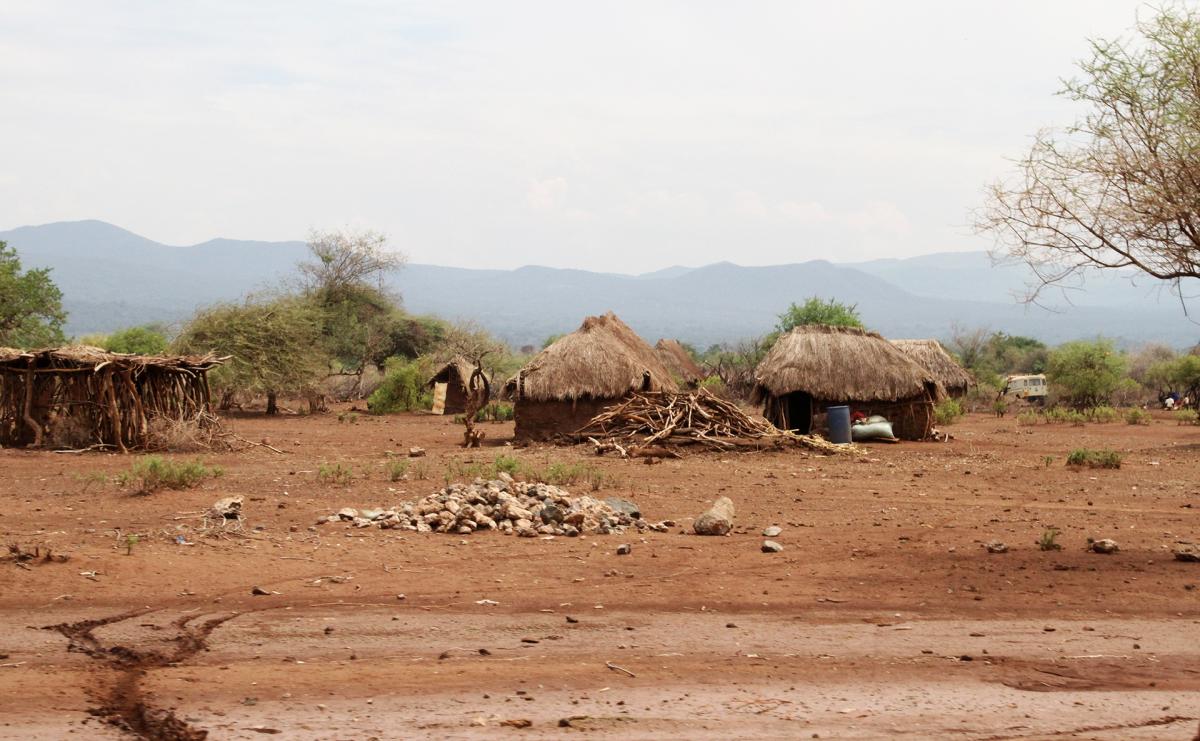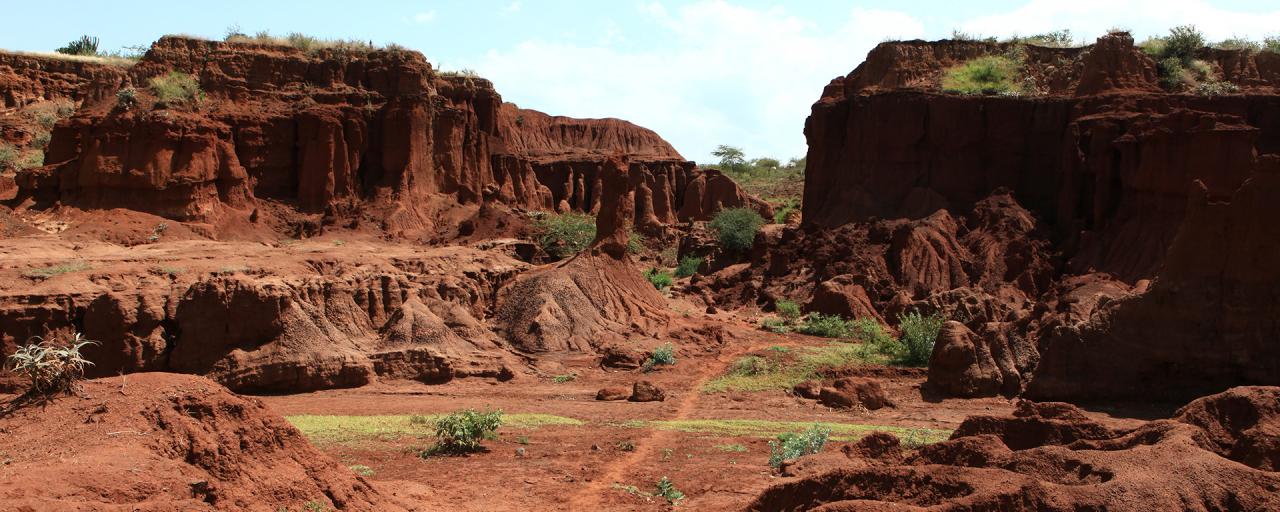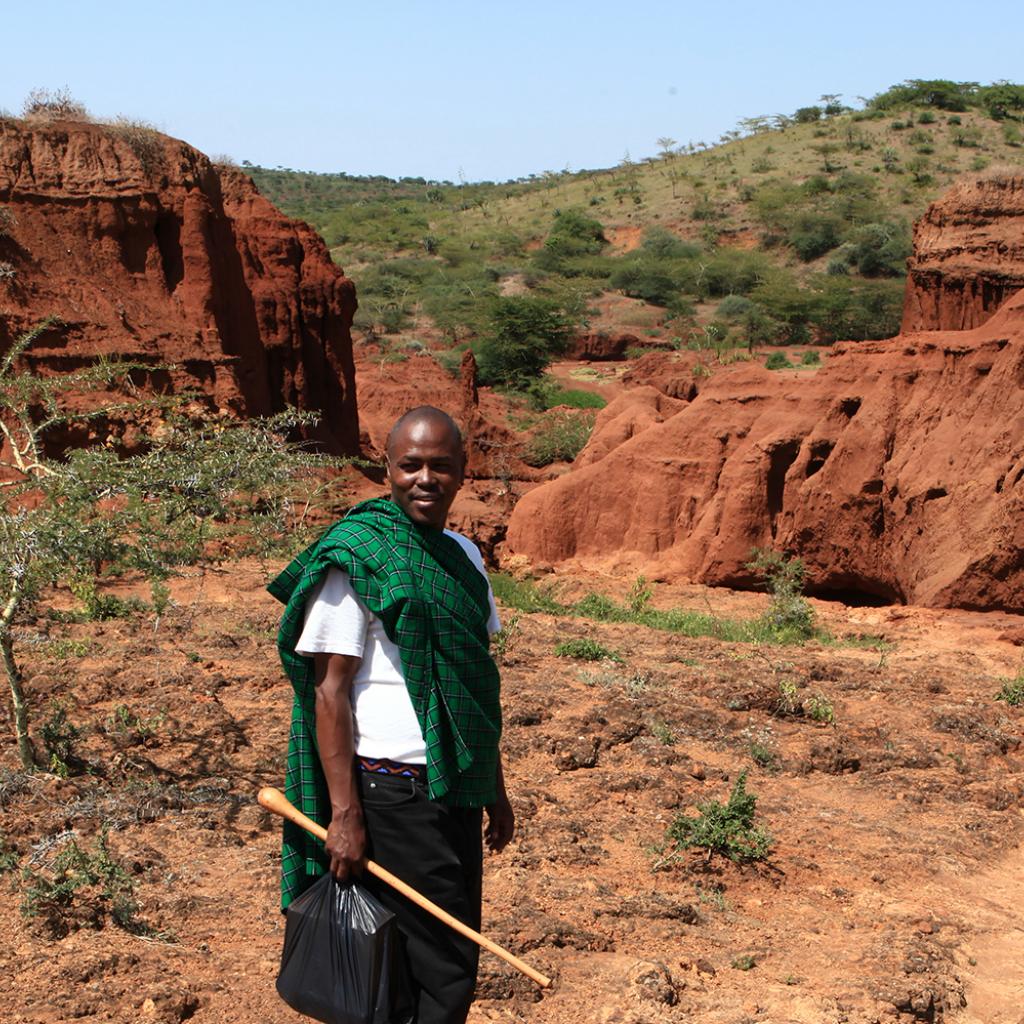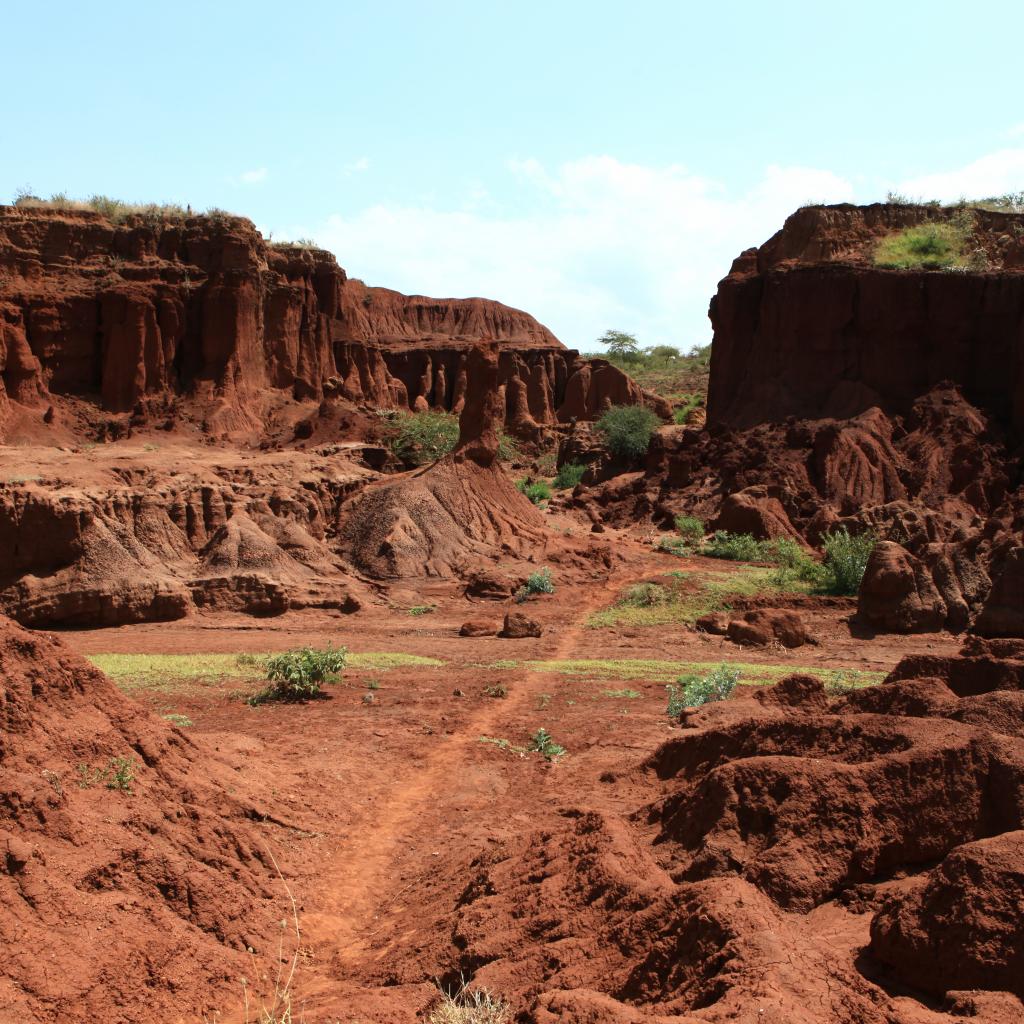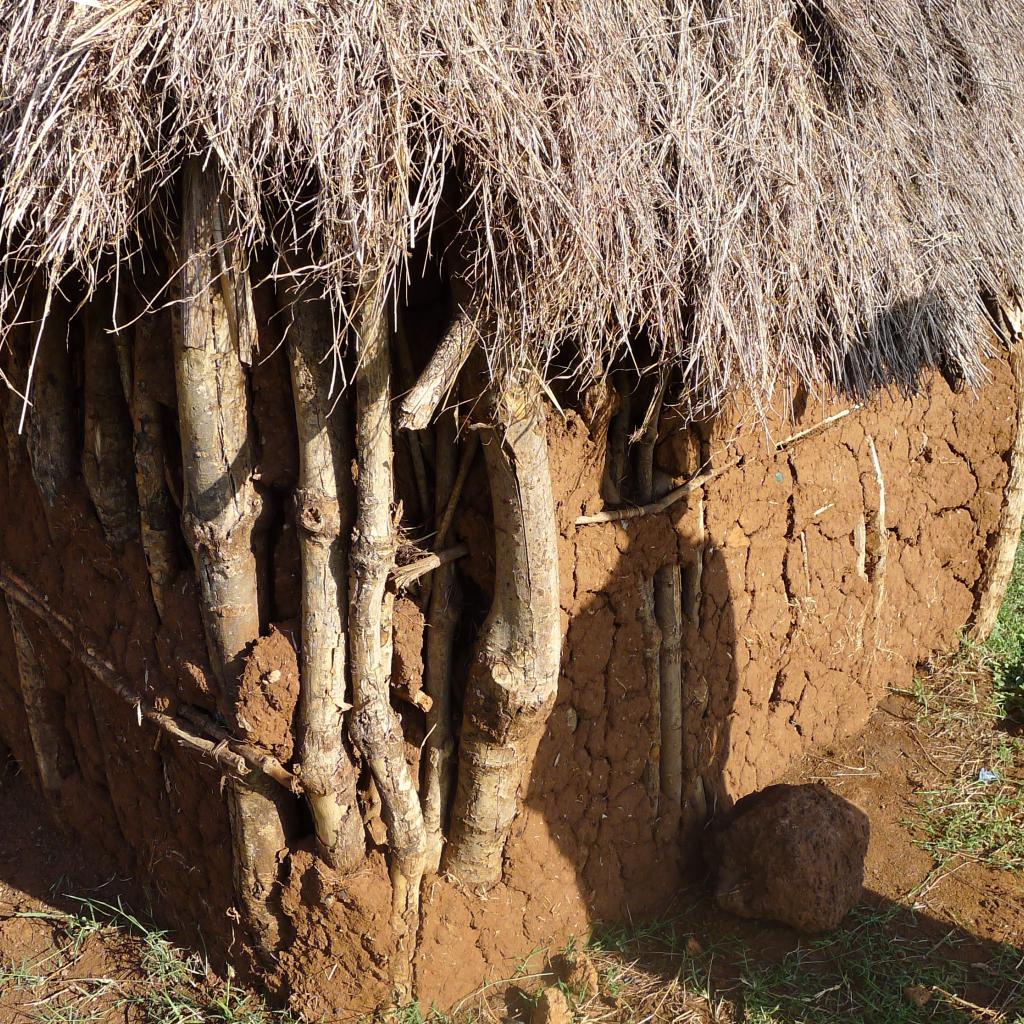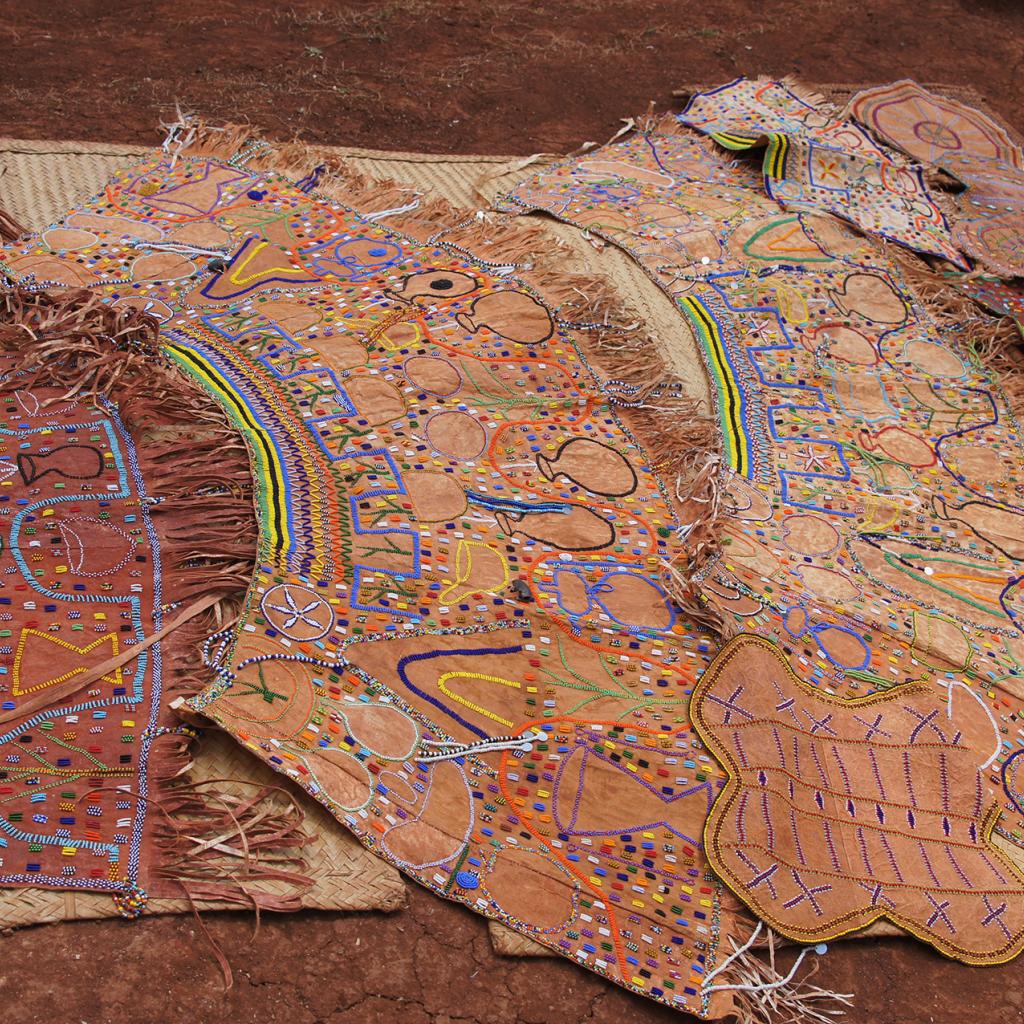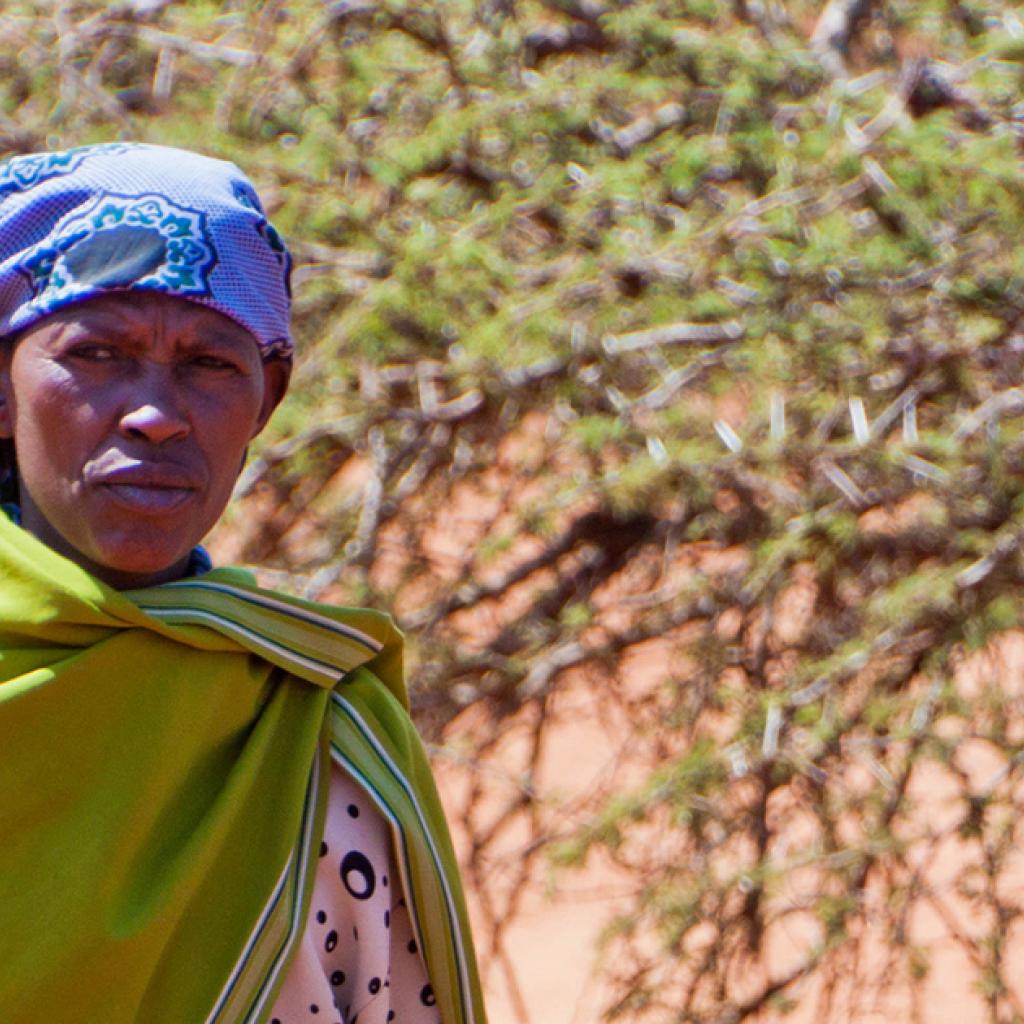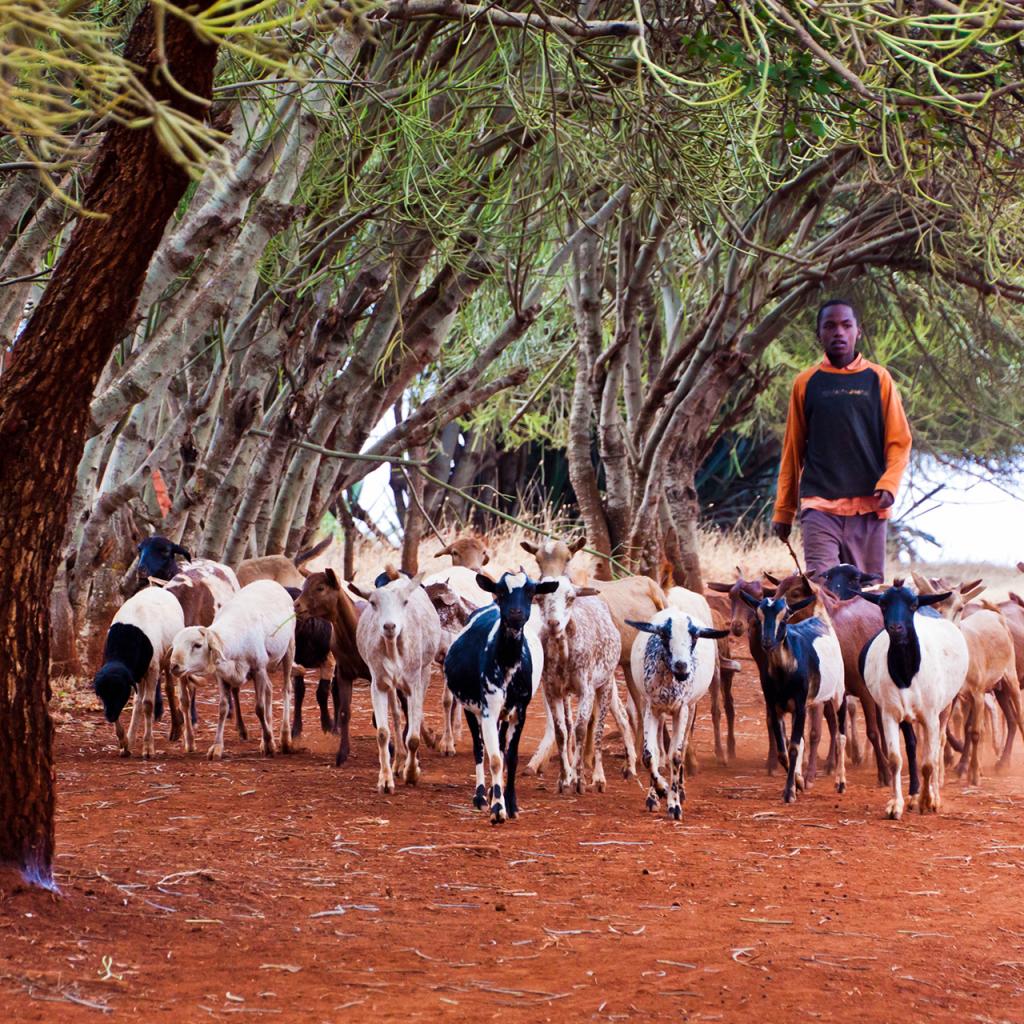The Mbulu have maintained many of their pre-colonial beliefs despite the presence in their society of Christianity and, to a lesser extent, Islam; their traditional religion is centred around the existence of two spiritual forces: Lo’a, or Looaa, and Netlangw, or Netlaamee.
Lo’a is a female deity who created the Earth and she is associated with the sun, the sky and the rain. She is a benevolent and motherly deity, characterized by all the traits of an ideal mother: she is sweet and kind and brings health and fertility to her children; sacrifices are made in her honour to ask for the prevention of diseases, invoke rain or in thank-giving for abundant harvest or favourable times.
Netlangw is a male deity who represents earthly spirits inhabiting rivers, creeks and water springs as well as caves, mountains and forests. He resembles humans in appearance and personality and the Mbulu associate him to daily problems of society.
For the Mbulu their ancestors play a fundamental role in their lives, as they believe they have an influence on people’s lives and they can reveal themselves disguised as hyenas; if angered for any reason whatsoever, the ancestors can cause serious damages only to their closest relatives, who have to appease them through ritual sacrifices.
According to the Mbulu beliefs, witchcraft is practices only by someone who can cause misfortune to others through the manipulation of animals; the diviner, or rainmaker, called qwaslare in the Iraqw language, is a specialist who has the responsibility to decide the rites that can bring the required benefits to the community; diviners can be both genders and they inherit their knowledge from ancestors; they do not ask for any payment in exchange of their work, but receive gifts from the people; in the Mbulu religious life their role is of utmost importance, because they are capable of influencing daily life and harvests.
As for death and the afterlife, the Mbulu believe that when people pass away they become ancestors and continue to ‘live’ in an underground world, very similar to the living world, where they continue to take care of the livestock and grow crops; families usually honour the deceased in a ceremony during which they slaughter a bull and drink beer in order to establish good relations with their ancestor.
Life, tradition and culture of Mbulu or Iraqw people
- Mbulu or Iraqw religion
- Mbulu or Iraqw villages
- Mbulu or Iraqw rituals and ceremonies
- Mbulu or Iraqw history
- Mbulu or Iraqw economy
